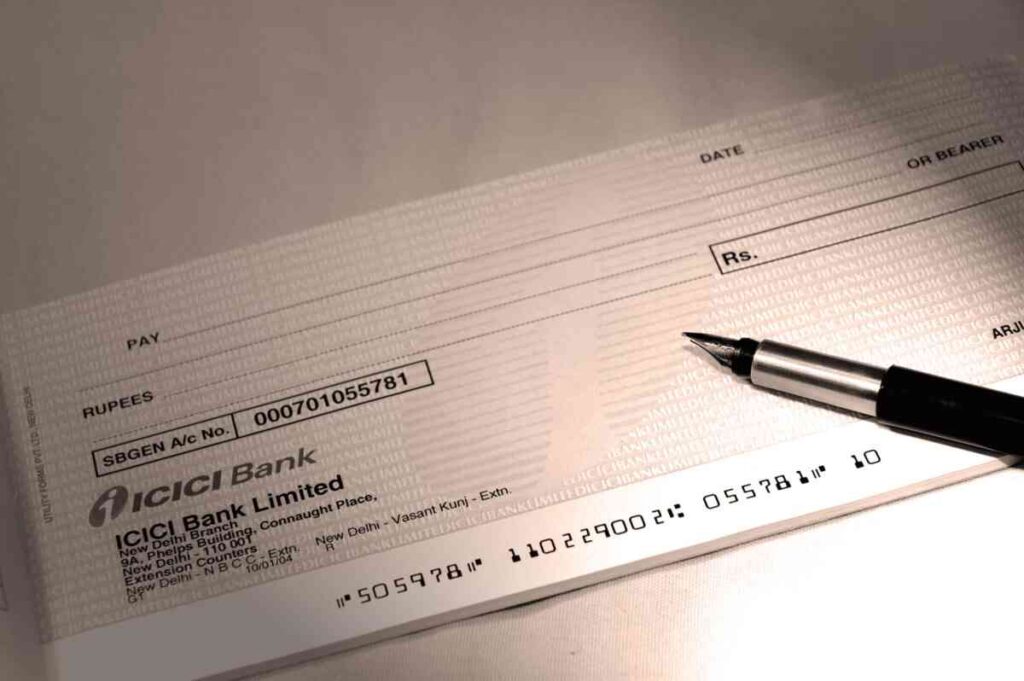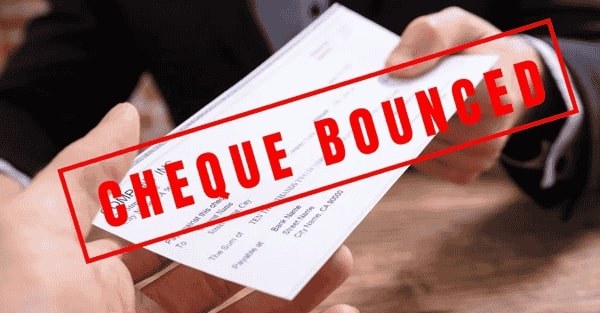
138 NI Act Explained: Cheque Bounce Cases in India
Learn the complete legal process of cheque bounce under Section 138 of the Negotiable Instruments Act, 1881 — including timelines, penalties, defenses, and how to file or defend such a case in India.

Introduction: Cheque Bounce and Legal Consequences
A cheque bounce in India is not just a financial inconvenience—it’s a legal offense. When a cheque is returned unpaid due to insufficient funds or other reasons, the drawer (person issuing the cheque) can face criminal prosecution under Section 138 of the Negotiable Instruments Act, 1881 (NI Act). This law empowers the payee (recipient of the cheque) to seek both monetary compensation and punishment through legal means.
- Offense Type: Criminal offense under a special statute (NI Act).
- Punishment: Up to 2 years of imprisonment and/or fine up to twice the cheque amount.
- Applicability: Applies to individuals, businesses, and corporate entities across India.
This blog explains the legal meaning, process, and practical steps involved in filing or defending a cheque bounce case under Section 138 NI Act in India.
What is Section 138 of the NI Act?
Section 138 of the NI Act deals with the dishonour of cheques due to insufficient funds or when the account is closed. The section ensures that cheques are honored and instills confidence in commercial transactions.
- Essential Conditions: A cheque must be issued for discharge of legally enforceable debt or liability.
- Dishonour Reason: Cheque is returned unpaid by the bank due to insufficient funds or account closure.
- Legal Notice: Payee must issue a written demand notice within 30 days of receiving the return memo from the bank.
Failure to comply with these conditions nullifies the case. Therefore, timely legal action is essential to successfully prosecute under Section 138.
Key Ingredients of a 138 Case
To succeed in a cheque bounce complaint under Section 138 NI Act, the following five conditions must be strictly satisfied:
- The cheque must have been drawn by the drawer on an account maintained by him.
- Cheque must have been issued for the discharge of a legally enforceable debt or liability.
- The cheque must have been presented within its validity (generally 3 months from the date).
- The cheque must have been returned unpaid by the bank due to insufficient funds or closure of account.
- A valid legal notice must have been issued within 30 days of receiving the bank return memo.
If any of these ingredients are missing, the case can be dismissed by the court.
Timeline for Filing a Cheque Bounce Case
Section 138 has a very specific timeline, and failure to meet these deadlines can lead to the rejection of the complaint. Here’s a typical process timeline:
- Cheque Presentation: Within 3 months of cheque date.
- Bank Returns Cheque: Due to insufficient funds or other valid reason.
- Legal Notice: To be sent to drawer within 30 days of bank’s return memo.
- Waiting Period: Drawer has 15 days from receipt of notice to make payment.
- Filing the Complaint: If no payment is made, file a complaint in Magistrate Court within 30 days after 15-day window ends.
Strict adherence to this timeline is crucial. Even a single day’s delay in sending notice or filing the case can be fatal to your complaint.
Legal Notice for Cheque Bounce – Format & Importance
Serving a legal demand notice is the first step in initiating a case under Section 138 NI Act. This notice must be:
- In writing (physical or email is not valid unless legally accepted).
- Served within 30 days of cheque return date.
- Clearly stating the cheque amount, date of bounce, reason, and demand for payment within 15 days.
The legal notice must be sent through registered post with acknowledgment or a courier with proof. A copy must be retained as evidence. This legal document is the base of your complaint—it’s not optional, it’s mandatory.
How to File a Case Under Section 138 NI Act
After the 15-day payment window post-legal notice ends without payment, the payee (complainant) can initiate a criminal case in the appropriate court. Here’s a step-by-step guide:
- Prepare Complaint: Draft a formal complaint detailing cheque issuance, bounce, legal notice, and lack of payment.
- Attach Documents: Include cheque copy, bank return memo, copy of legal notice, proof of notice delivery, and supporting documents of the debt.
- Jurisdiction: File the complaint in the Magistrate Court where the bank of the payee (complainant) is located.
- Affidavit and Verification: Submit an affidavit verifying the complaint’s facts.
- Court Proceedings: If prima facie case is found, the court will issue summons to the accused.
The complainant must appear during the initial stages, and later stages can be handled by an advocate. Delay in filing can lead to dismissal unless delay is condoned by the court.
Punishment Under Section 138 of NI Act
The punishment for cheque bounce under Section 138 NI Act is strict and intended to deter defaulters. The court may impose:
- Imprisonment: Up to 2 years of jail time for the drawer.
- Fine: Up to double the amount of the bounced cheque.
- Compensation: Under Section 357 CrPC, the court can also direct payment of compensation to the complainant.
Court may also pass additional orders such as interim compensation, or recovery under Section 143A and 148 of NI Act, which allow compensation to the complainant during the trial or appeal phase.
Defenses Available to the Drawer (Accused)
The drawer (accused) in a cheque bounce case can defend themselves with valid legal grounds. Some common defenses include:
- No Legally Enforceable Debt: If the cheque was not issued for a debt or legal liability (e.g., loan not taken).
- Cheque Was Misused: Lost cheque or cheque given as security and misused later.
- Defective Legal Notice: If the legal notice was not sent on time, or is incomplete or invalid.
- Cheque Was Post-Dated or Stale: Presented before due date or after expiry of 3 months.
- Payment Was Made: If full payment was made within 15 days after notice.
It’s important that the accused collects and preserves all bank statements, chats, or emails as evidence to prove non-liability or procedural defects.
Section 138 vs Section 420 IPC – Know the Difference
People often confuse cheque bounce with fraud under Section 420 of the Indian Penal Code (IPC). Here’s how they differ:
- Section 138 NI Act: A special criminal provision for cheque dishonour. Focus is on payment recovery.
- Section 420 IPC: Deals with cheating and criminal intent from the beginning (mens rea).
- Burden of Proof: In 138, the drawer is presumed guilty unless rebutted. In 420, complainant must prove intent to cheat.
Court generally discourages simultaneous use of Section 420 unless there is clear fraud involved from the start. Filing both may be seen as harassment unless properly justified.
Recent Amendments and Supreme Court Rulings
To reduce pendency and improve the recovery process, the government and judiciary have introduced changes:
- Section 143A NI Act (2018): Allows interim compensation of up to 20% of cheque amount during trial.
- Section 148 NI Act (2018): Allows appellate court to order payment of minimum 20% compensation during appeal by accused.
- Supreme Court Ruling (2020): Directed special NI Act courts to dispose of cases within 6 months.
- Use of Video Conferencing: Permitted in cheque bounce cases to speed up hearings.
These changes ensure the process is more effective and provides justice to payees without long delays.
Cheque Bounce Cases Against Companies
When a cheque is issued by a company and it bounces, the company and its directors/officers responsible for its operations can be held liable:
- Company as Accused: The company is the principal accused.
- Managing Director/Partners: Officers in charge at the time of offense are also made party to the complaint.
- Proof of Role: Complainant must show specific role and responsibility of the director to hold him liable.
- Liability Is Not Automatic: Every director is not automatically liable—individual involvement must be shown.
This ensures that only those in actual control of business operations are held responsible for cheque defaults.
Which Court Has Jurisdiction in Cheque Bounce Cases?
The jurisdiction for filing a cheque bounce case is defined under Section 142(2) of the NI Act. The case must be filed in the court within whose local jurisdiction:
- The Bank Branch of the Payee (Complainant): Where the cheque was presented and dishonoured.
For example, if a cheque was deposited in a bank in Vadodara or Ahmedabad, the complaint must be filed in the local Magistrate Court of that city. This provision has replaced older rules that allowed filing based on drawer’s bank branch.
Trial Procedure in a Cheque Bounce Case
Cheque bounce trials follow a summary procedure to ensure speedy justice. The steps are:
- Preliminary Hearing: Complainant submits affidavit and documents. If court is satisfied, summons is issued.
- Appearance of Accused: Accused appears and pleads guilty or not guilty.
- Evidence Stage: Complainant is examined, followed by cross-examination. Then accused is given a chance to present defense.
- Judgment: Based on evidence and law, court passes an order of conviction or acquittal.
- Appeal: Either party can file appeal within 30 days from judgment date.
Some courts allow compounding of offense at any stage, meaning parties can settle the matter and withdraw proceedings with court’s permission.
Filing Cheque Bounce Case in Gujarat – Vadodara & Ahmedabad
If you are located in Vadodara, Ahmedabad, or elsewhere in Gujarat, you can file a cheque bounce case in the Magistrate Court having jurisdiction over the bank branch where you deposited the bounced cheque.
- Vadodara: File in the Judicial Magistrate First Class (JMFC) Court if the bank account is in Vadodara city or district.
- Ahmedabad: You can file at the Metropolitan Magistrate Court if your bank is located within Ahmedabad city limits.
- Required Documents: Cheque copy, bank memo, legal notice copy, proof of delivery, complainant affidavit, and ID/address proof.
You can also take the help of Advocate Ace legal experts in Gujarat to draft notices, file the case, or contest claims filed against you.
FAQs – Section 138 Cheque Bounce Cases in India
Is cheque bounce a criminal offense in India?
Yes. Under Section 138 of the NI Act, cheque bounce is a criminal offense punishable with up to 2 years of imprisonment or fine, or both.
What is the time limit to file a cheque bounce case?
You must file the case within 30 days after the 15-day notice period ends if no payment is received. Delay can be condoned by the court if justified.
Can I recover my money in a cheque bounce case?
Yes. The court can award compensation up to twice the cheque amount and direct payment even during appeal under Section 148 of NI Act.
What if the accused lives in another state?
You can still file the case in the court where you deposited the cheque, as per Section 142(2). The court can issue summons to the accused even if they live elsewhere.
Can a case be filed against a company?
Yes. You can file a case against a company and also its managing director or responsible officers. The complaint must show their role in the offense.
Conclusion: Assert Your Legal Rights Under Section 138
Cheque bounce cases in India are governed by strict timelines and procedural requirements. Section 138 of the NI Act is a powerful remedy that protects the rights of individuals and businesses against payment defaults.
- Be Aware: Follow the correct legal procedure and timelines.
- Act Quickly: Delay can lead to loss of your legal remedy.
- Seek Expert Advice: Legal help can ensure that your case is not rejected on technical grounds.
If you’re facing a cheque bounce issue—whether you’re filing or defending—consult a legal expert. Advocate Ace offers professional legal consultation and representation across India.
Need Help With Cheque Bounce Legal Issues?
Whether you’re a business, freelancer, or individual—don’t let cheque defaults go unpunished. Advocate Ace offers expert legal support for cheque bounce cases in Ahmedabad, Vadodara, and all across India.
Book Your Consultation Now

